

Danny believes that happy bees make tasty honey.
With a purposeful culture, strategy and support systems, high performance becomes a side effect.
He is a psychologist, author, accredited coach, and psychometrician whose work lies at the intersection of leadership, culture and personality, with a focus on individual differences – especially the “dark triad” traits of narcissism, psychopathy, and Machiavellianism.
An expert in culture and leadership dynamics, Danny has been recognised among the Global Top 25 Thought Leaders on Culture and in Leadership and has spent nearly 30-years in contact centre, retail and fintech industries, designing cultures, leadership systems, and strategies in which energy, clarity, and collaboration multiply success.
He is the founder of Firgun, a consultancy whose Hebrew name captures his core motivation: “the genuine, sincere and pure happiness for another person’s accomplishment or experience”, whose clients include Worldpay, M&G Investment Bank, and LEGO.
He lives in Stoke-on-Trent, UK, with his partner, Charlene.
Available For: Advising, Authoring, Consulting, Speaking
Travels From: Stoke on Trent, UK
Speaking Topics: Culture, Employee Engagement, Leadership, Constellation Leadership
| Danny Wareham | Points |
|---|---|
| Academic | 115 |
| Author | 563 |
| Influencer | 89 |
| Speaker | 195 |
| Entrepreneur | 220 |
| Total | 1182 |
Points based upon Thinkers360 patent-pending algorithm.
 MSc Organisational Psychology
MSc Organisational Psychology
Tags: Leadership
 MBA (Psychology)
MBA (Psychology)
Tags: Leadership
Tags: Culture, Leadership
Tags: Culture, Leadership
Tags: Culture, Leadership
Tags: Culture, Leadership
Tags: Culture, Leadership
Tags: Culture, Leadership
Tags: Culture, Leadership
Tags: AI, Culture, Leadership
Tags: Culture, Leadership
Tags: Culture, Leadership
Tags: Culture, Supply Chain
Tags: Culture
Tags: Finance, Leadership
Tags: Coaching, Culture, Leadership
 Why One-Size Coaching Fails: The Psychology We Pretend Not to See
Why One-Size Coaching Fails: The Psychology We Pretend Not to See
Tags: Coaching, Culture
 Altruism: Be The Change
Altruism: Be The Change
Tags: Culture, Leadership, Management
 The Accidental Saboteur: Culture From The CIA
The Accidental Saboteur: Culture From The CIA
Tags: Culture, Leadership
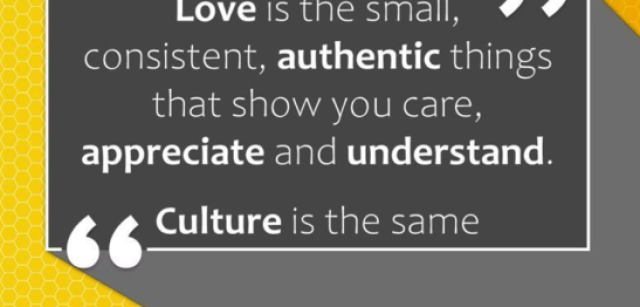 Culture is like Love
Culture is like Love
Tags: Culture, Leadership, Management
Tags: Culture, Leadership, Management
 Constellation Complexity
Constellation Complexity
Tags: Culture, Leadership, Management
Tags: Culture, Leadership, Management
Tags: Culture, Leadership, Management
Tags: Culture, Leadership, Management
Tags: Culture, Leadership, Management
Tags: Culture, Leadership, Management
Tags: Culture, Leadership, Management
 From Bundles to Constellations: Rethinking Team Alignment
From Bundles to Constellations: Rethinking Team Alignment
Tags: Culture, Leadership
Tags: Culture, Leadership, Management
Tags: Culture, Leadership, Management
Tags: Culture, Leadership, Management
Tags: Culture, Leadership, Management
Tags: Culture, Leadership, Management
Tags: Culture, Leadership, Management
Tags: Culture, Leadership, Management
Tags: Culture, Leadership, Management
Tags: Culture, Leadership, Management
Tags: Culture, Leadership, Management
Tags: Culture, Leadership, Management
Tags: Culture, Leadership, Management
Tags: Culture
Tags: Customer Experience
Tags: Culture, Leadership
Tags: Culture, Leadership
Tags: Culture, Leadership, Social
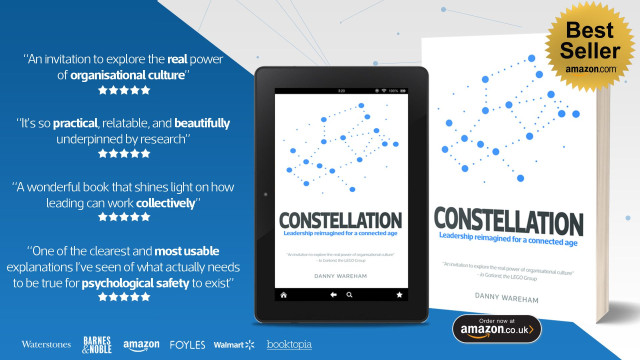 Constellation: Leadership reimagined for a connected age
Constellation: Leadership reimagined for a connected age
Tags: Culture, Leadership
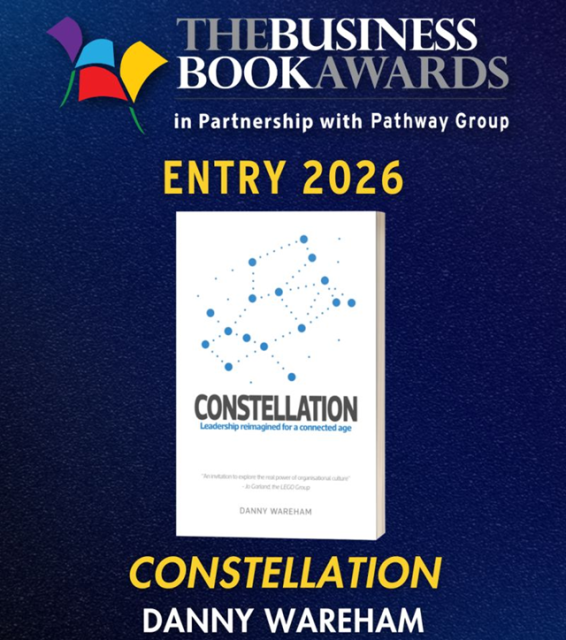 Leadership Book of the Year: Shortlisted
Leadership Book of the Year: Shortlisted
Tags: Leadership
 Best of HR Books
Best of HR Books
Tags: Leadership
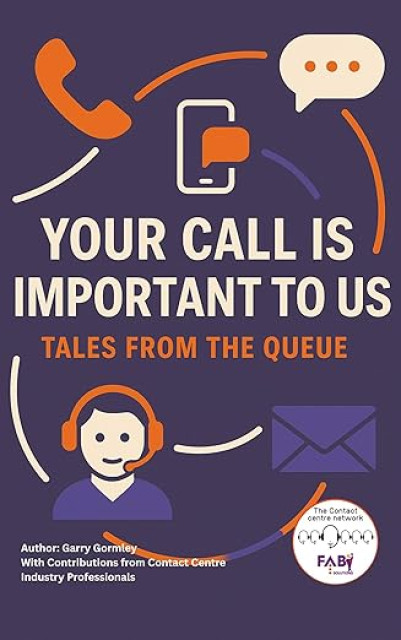 Your Call Is Important To Us: Tales From The Queue
Your Call Is Important To Us: Tales From The Queue
Tags: Culture
Tags: Culture
Tags: Culture, Leadership
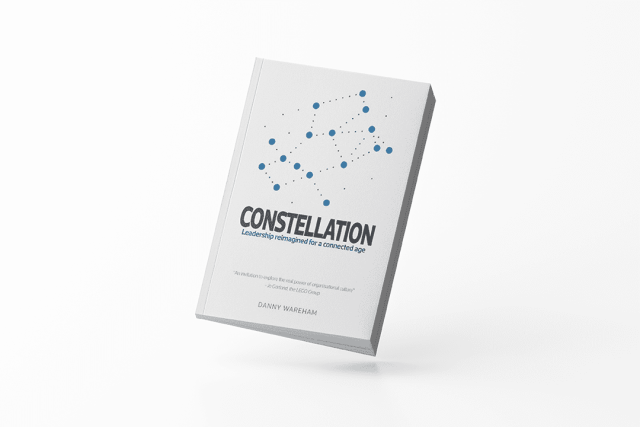 Book review: Finding clarity in complexity with Constellation
Book review: Finding clarity in complexity with Constellation
Tags: Culture, Leadership
Tags: Culture
Tags: Culture
Tags: Culture, Leadership
Tags: Culture, Leadership
Tags: Culture, Leadership
Tags: Culture
Tags: Culture
Tags: Culture
Tags: Culture, Leadership
Tags: Culture
Tags: Culture
Tags: Culture
Tags: Culture
Tags: Culture, Leadership
Tags: Culture, Leadership
Tags: Culture, Leadership
Tags: Culture, Leadership
Tags: Culture, HR
Tags: Culture, Leadership
Tags: Culture, Leadership
Tags: Culture, Leadership
Tags: Leadership
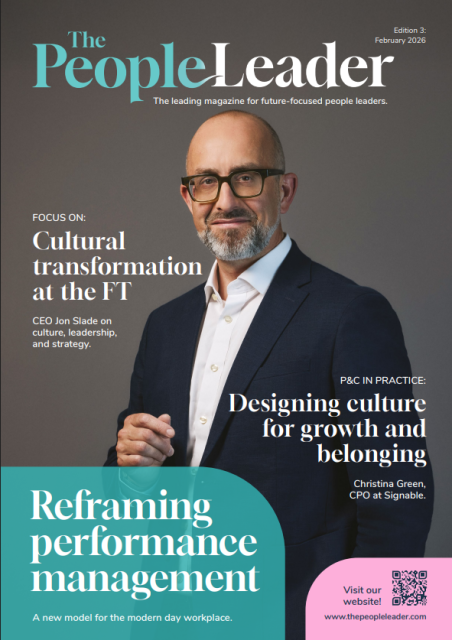 The People Leader Magazine
The People Leader Magazine
Tags: Culture, Leadership
Tags: Culture, Leadership, Recruiting
Tags: Culture, Leadership
Tags: Culture, Leadership
Tags: Culture, Leadership
Tags: Culture, Leadership
Tags: Culture, Leadership
Tags: Culture, Leadership
Tags: Culture, Leadership
Tags: Culture, Leadership
Tags: Culture, Leadership
Tags: Culture, Leadership
Tags: Culture, Leadership
Tags: Culture, Leadership
Tags: Culture, Leadership
Tags: Culture, Leadership
Tags: Culture, Leadership
Tags: Culture, Leadership
Tags: Culture, Leadership
 Jobs for life
Jobs for life
Tags: Culture, Leadership
 Depression Isn't Scheduled: Lessons from Blue Monday
Depression Isn't Scheduled: Lessons from Blue Monday
Tags: Culture
 Constellation Leadership
Constellation Leadership
Tags: Culture, Leadership
 Firgun Ltd
Firgun Ltd
Tags: Culture, Leadership, Coaching
Tags: Business Strategy, Culture, Design
 IoL Advocate of the Year
IoL Advocate of the Year
Tags: Leadership
 Chapter Member of the Year
Chapter Member of the Year
Tags: Culture
Tags: Leadership
Tags: Leadership
Tags: Culture
Tags: Culture
 People & Culture Association
People & Culture Association
Tags: Culture
 CXM Stars 2026
CXM Stars 2026
Tags: Leadership
 Institute of Leadership Awards 2025: Advocate of the Year
Institute of Leadership Awards 2025: Advocate of the Year
Tags: Leadership
 Finalist: The Institute Advocate of the Year Award
Finalist: The Institute Advocate of the Year Award
Tags: Leadership
Tags: Culture, Leadership
Tags: Culture, Leadership, Agile
 Creating Constellations: The influence of Constellation Leadership on Agile methodology-led project delivery success
Creating Constellations: The influence of Constellation Leadership on Agile methodology-led project delivery success
Tags: Culture, Leadership, Agile
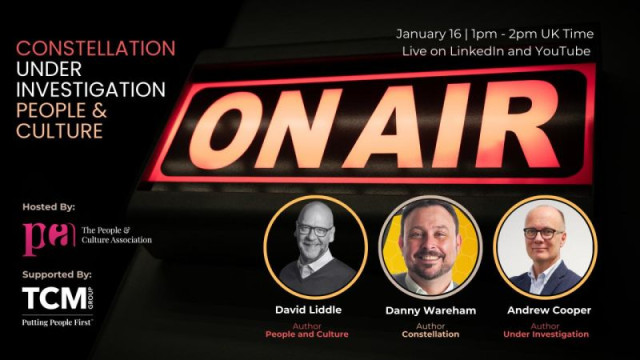 Constellation | Under Investigation | People & Culture - TW Book Club 2026
Constellation | Under Investigation | People & Culture - TW Book Club 2026
Tags: Culture, Leadership
 Stop giving great service
Stop giving great service
Tags: Culture, Customer Experience, Leadership
 Why procrastination is pleasurable
Why procrastination is pleasurable
Tags: Coaching, Culture
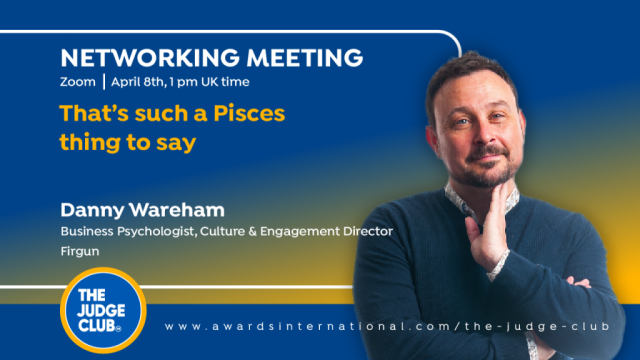 Webinar: That’s such a Picses thing to say
Webinar: That’s such a Picses thing to say
Tags: Culture, Leadership
 What does it mean to be a good team leader in the Contact Centre?
What does it mean to be a good team leader in the Contact Centre?
Tags: Culture, Leadership
 Cracking the Personality Code
Cracking the Personality Code
Tags: Culture, Leadership
 Leadership is a joke
Leadership is a joke
Tags: Culture, Leadership
 The Impact of Personality in Business
The Impact of Personality in Business
Tags: Culture, Leadership
 Henley Centre for Leadership Learning Event: Can Leadership be Leader-less?
Henley Centre for Leadership Learning Event: Can Leadership be Leader-less?
Tags: Culture, Leadership
 Managing a Multi-Generational Workforce
Managing a Multi-Generational Workforce
Tags: Culture, Leadership
 Are culture and engagement pointless? Probably
Are culture and engagement pointless? Probably
Tags: Culture, Leadership
 Culture as a driver of health and safety
Culture as a driver of health and safety
Tags: Culture, Health and Safety, Leadership
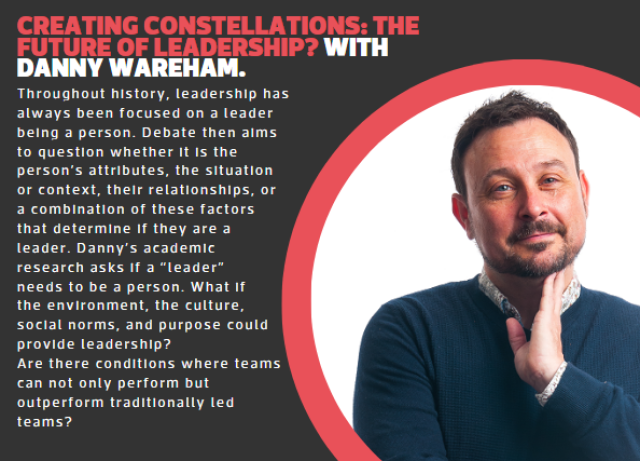 Creating Constellations: The future of leadership?
Creating Constellations: The future of leadership?
Tags: Culture, Leadership
 The Contact Centre Leader's Guide to Thriving in the Hybrid Era
The Contact Centre Leader's Guide to Thriving in the Hybrid Era
Tags: Culture, Leadership
 Trust in a Hybrid World
Trust in a Hybrid World
Tags: Culture, Leadership
 Afterwork
Afterwork
Tags: Culture, Leadership
 Is culture pointless? Probably...
Is culture pointless? Probably...
Tags: Culture, Leadership
 Newspaper Report: Constellation
Newspaper Report: Constellation
Tags: Culture, Leadership
Tags: Culture, Leadership
Tags: Culture, Leadership
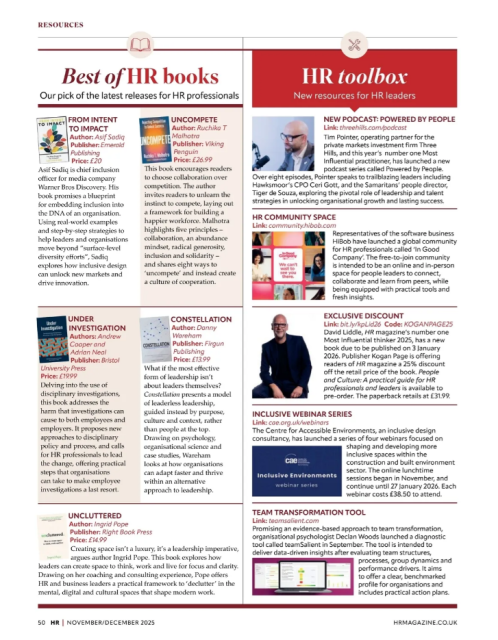 Best HR Books of 2025 (Dec)
Best HR Books of 2025 (Dec)
Tags: Culture, Leadership
 60 seconds with… Danny Wareham
60 seconds with… Danny Wareham
Tags: Culture, Leadership
 New author Danny says future business leadership could be written in the stars.
New author Danny says future business leadership could be written in the stars.
Tags: Culture, Leadership
 UK Employee Experience Awards
UK Employee Experience Awards
Tags: Culture, Leadership
 Business Spotlight - Danny Wareham
Business Spotlight - Danny Wareham
Tags: Culture, Leadership
Tags: AI, Culture, Leadership
 Workplace Culture in Franchising
Workplace Culture in Franchising
Tags: Culture
 CXA Annual Conference 2025
CXA Annual Conference 2025
Tags: AI, Culture, Leadership
 Cultivating Commitment: Building Culture, Retention and Development
Cultivating Commitment: Building Culture, Retention and Development
Tags: Culture, Leadership
 HR In The Hot Seat
HR In The Hot Seat
Tags: Culture, Leadership
Tags: Culture, Leadership
Tags: Culture, Leadership
 What if leadership didn't need a leader?
What if leadership didn't need a leader?
Tags: Culture, Leadership
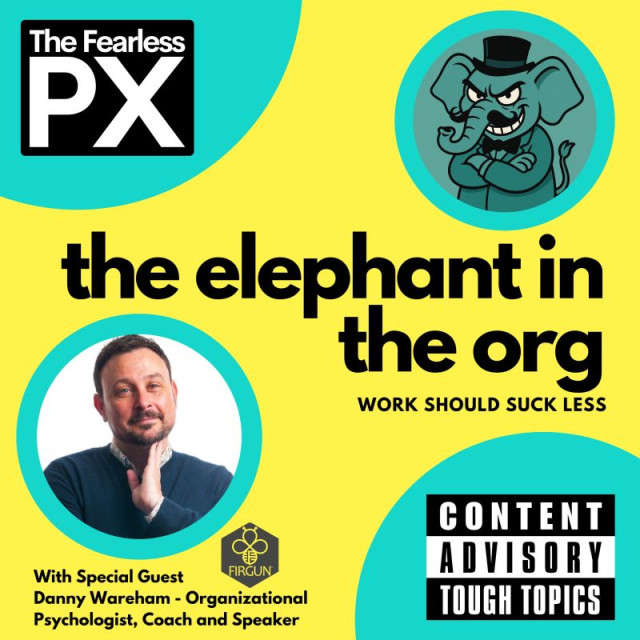 Your CEO might be a narcissist...But don't panic (yet)
Your CEO might be a narcissist...But don't panic (yet)
Tags: Culture, Leadership
 The Power of Personality
The Power of Personality
Tags: Culture, Leadership
 What no one tells you about building culture
What no one tells you about building culture
Tags: Culture, Leadership
 Is it possible to grow a business without a leader?
Is it possible to grow a business without a leader?
Tags: Culture, Leadership
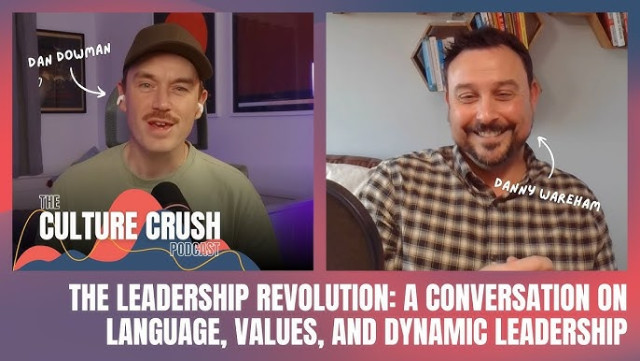 A leaderhsip revolution: A conversation on language, values & dynamic leadership
A leaderhsip revolution: A conversation on language, values & dynamic leadership
Tags: Culture, Leadership
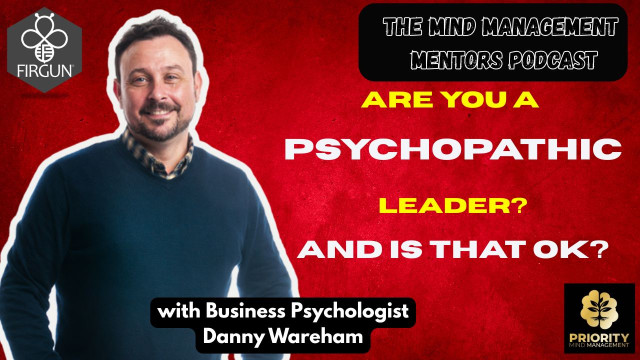 People powered success
People powered success
Tags: Culture, Leadership
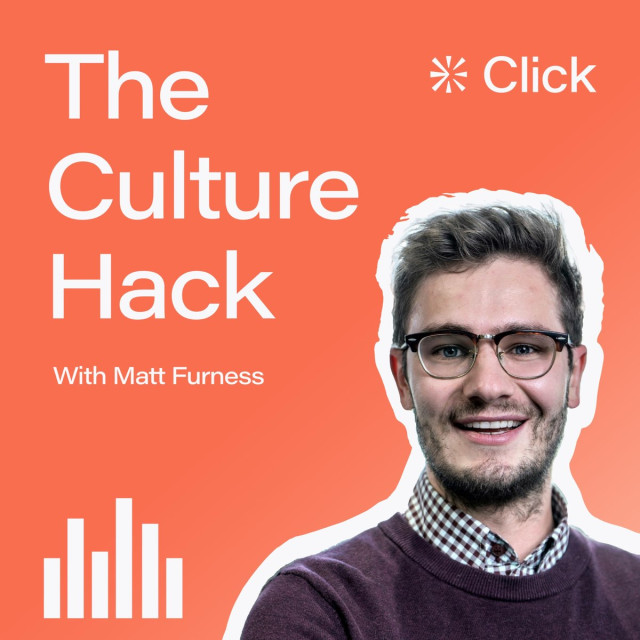 Happy Bees Make Tasty Honey
Happy Bees Make Tasty Honey
Tags: Culture, Leadership
 Aligning culture to organisational strategy
Aligning culture to organisational strategy
Tags: Culture, Leadership, Retail
 Culture & Bees
Culture & Bees
Tags: Culture, Leadership
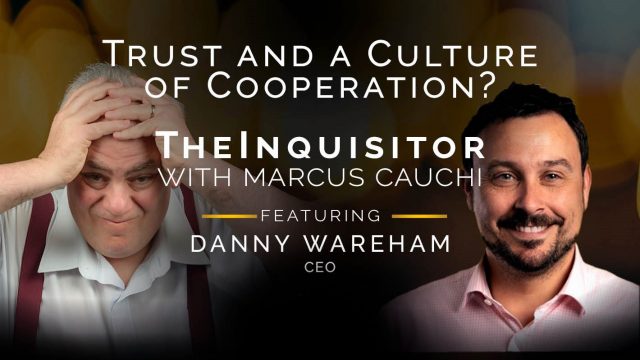 How do the best managers build trust and cooperation?
How do the best managers build trust and cooperation?
Tags: Culture, Leadership
 LinkedIn
LinkedIn
Tags: Culture, Leadership
 LinkedIn Business
LinkedIn Business
Tags: Culture, Leadership
 LinkedIn Independent
LinkedIn Independent
Tags: Culture, Leadership
 Instagram
Instagram
Tags: Culture, Leadership
 Facebook
Facebook
Tags: Culture, Leadership
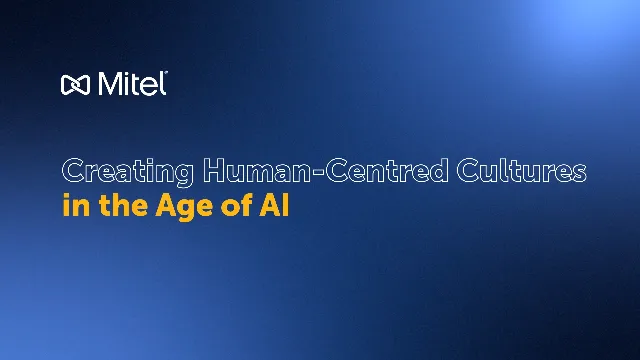 Creating Human-Centred Cultures in the Age of AI
Creating Human-Centred Cultures in the Age of AI
Tags: AI, Culture, Leadership
Tags: Culture, Leadership
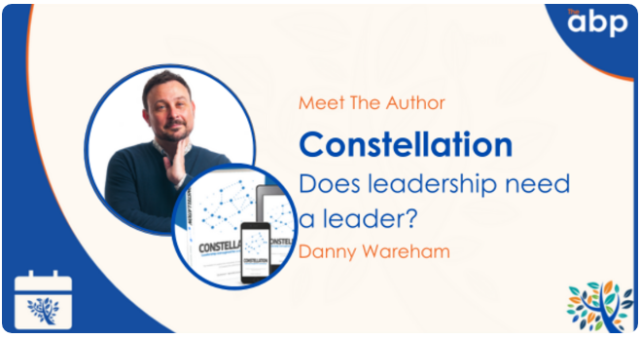 Meet The Author: Constellation - does leadership need a leader?
Meet The Author: Constellation - does leadership need a leader?
Tags: Culture, Leadership
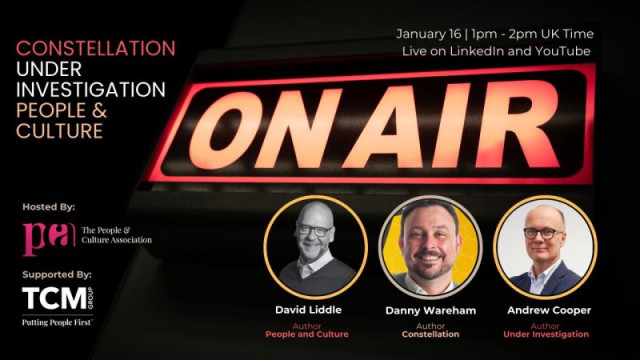 People & Culture - TW Book Club 2026
People & Culture - TW Book Club 2026
Tags: Culture, Leadership
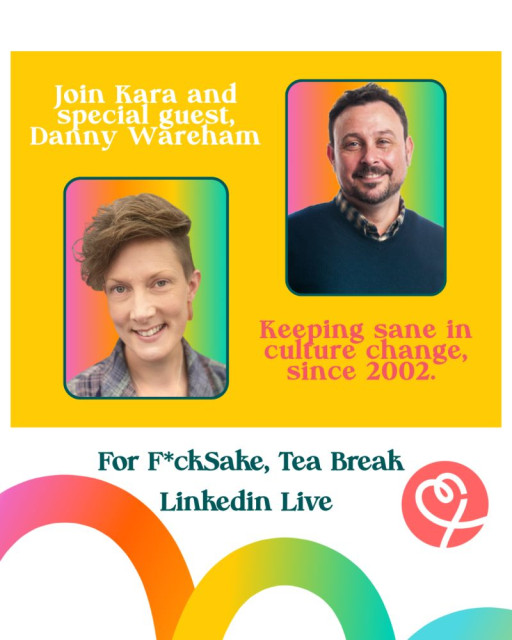 The FFS Tea Break
The FFS Tea Break
Tags: Culture, Leadership
 Are you a Psychopathic Leader?
Are you a Psychopathic Leader?
Tags: Culture, Leadership
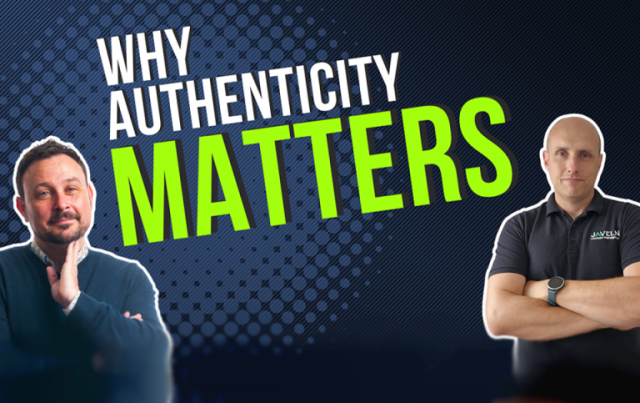 Why Authenticity Matters
Why Authenticity Matters
Tags: Culture, Leadership
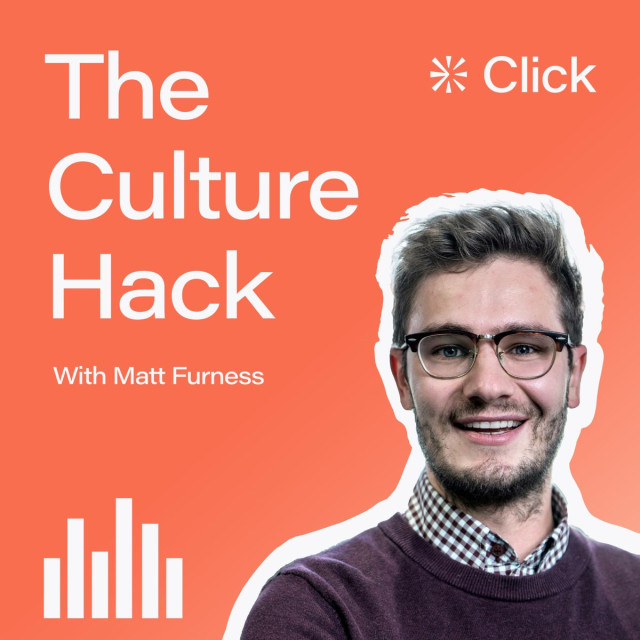 Happy bees make tasty honey | The Culture Hack | EP10
Happy bees make tasty honey | The Culture Hack | EP10
Tags: Culture, Leadership
Tags: Culture
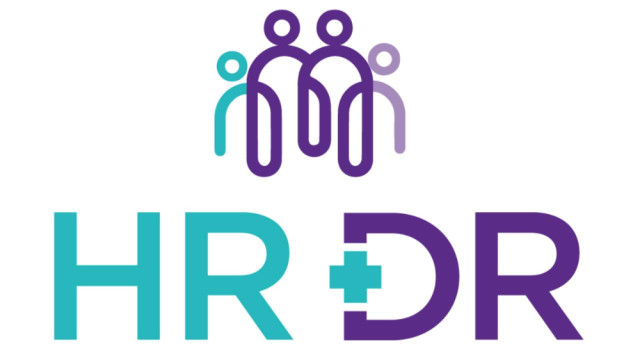 Building a Healthy Culture
Building a Healthy Culture
Tags: Culture, Leadership

Tags: Culture, Leadership, Management
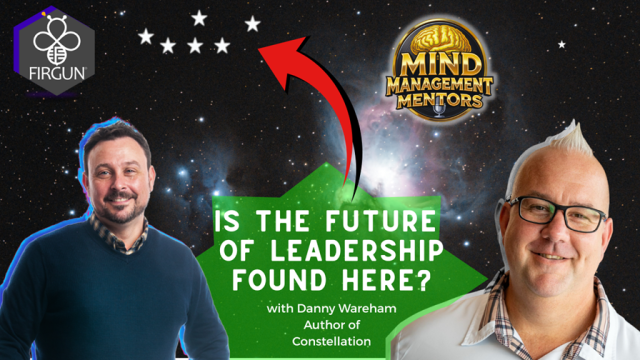 Leadership Reimagined: Do We Really Need Leaders?
Leadership Reimagined: Do We Really Need Leaders?
Tags: Culture, Leadership
 Get Out of Wrap
Get Out of Wrap
Tags: Culture, Leadership
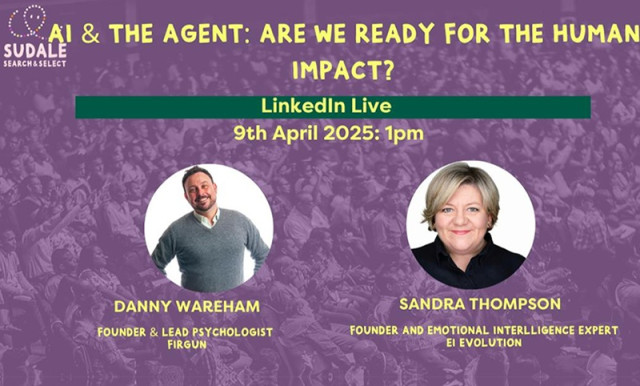 Webinar: AI & the Agent – Are we ready?
Webinar: AI & the Agent – Are we ready?
Tags: AI, Culture, Leadership
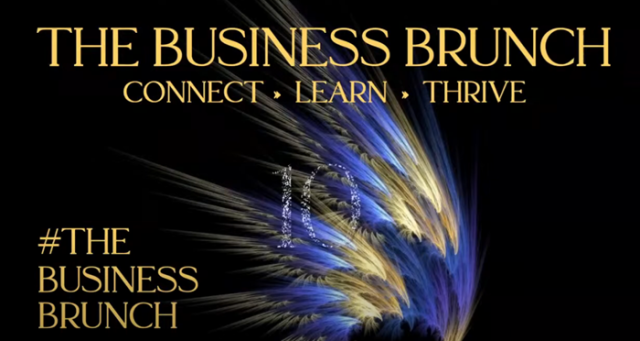 Culture/Engagement Connection - The Business Brunch
Culture/Engagement Connection - The Business Brunch
Tags: Culture, Leadership
Tags: Culture, Leadership
 The Mean and the Margin: When Intelligence Is Trained on the Average, Who Does It Forget?
The Mean and the Margin: When Intelligence Is Trained on the Average, Who Does It Forget?
Let’s begin with something playful: a caricature.
The recent surge in AI caricature creation feels like digital fun: a prompt here, a few clicks there, and suddenly we have an image that tries to capture “you” in stylised form. It is delightful, whimsical even, and at first glance seems like pure harmless creativity.
But beneath the cartoon smiles, something subtle and troubling can occur.
One day, former Paralympic swimmer Jessica Smith tried exactly this. She asked an AI model to generate images of herself. These should reflect her real-life appearance, including that she was born without her left arm. Despite carefully written prompts, the AI kept producing images of her with two arms or with prosthetics she never used. When she asked the model why, it replied, in effect, “I don’t have enough examples of people like you in my training data to know how to depict that.”
For Smith – an elite athlete and disability advocate – this wasn’t merely a technical oddity. It was a kind of erasure.
What was supposed to be a caricature tool instead revealed both a blind spot and a deeper truth about how these systems operate.
Large language and image models are, at their core, predictive systems. They don’t understand the world in any human sense; they estimate what is statistically likely given the data they’ve seen.
If a dataset contains overwhelmingly more images of people with two arms than people with one, then (with all else equal) the model will “guess” two arms when creating a new image. This is not prejudice in the conventional moral sense. It is, rather, a kind of regression to the mean: an automatic pull toward what is common and statistically dominant.
This term has a loaded historical lineage. Sir Francis Galton first articulated regression to the mean in the 19th century within the context of heredity and human traits.
Galton was half-cousin to Charles Darwin. But unlike Darwin, who sought to understand evolution as a record of change over time, Galton looked to apply the principle of natural selection to contemporary society. His belief that society could be “improved” by encouraging the reproduction of those with desirable traits, and discouraging that of others, made him the founder of eugenics.
Using it here is not to equate AI with that dark history, but to acknowledge a shared logic: in both cases, deviation from the average gets smoothed toward the centre. This smoothing can have real consequences, even when there is no intent to harm.
Models built on massive datasets implicitly learn the average human first and foremost. Outlier identities that are under-represented in source data become harder for them to reproduce faithfully.
In Smith’s case, multiple attempts yielded images where her limb difference was “fixed,” because the model’s internal representation simply had too few examples of people without bilateral limbs. Only after further updates to the system – in part prompted by public reporting – was it eventually able to depict her accurately.
This example illustrates a broader dynamic:
This is not only about images. Language models trained on text corpora can, for instance, reinforce dominant narratives about gender, culture, or ability if the diversity of voices in their training set is limited. They predict words and images based on patterns in the data they’ve seen. But those patterns are not neutral reflections of humanity; they are historical aggregates of what is most represented.
The resulting outputs can silently privilege “average” experiences and marginalise others. This is not through malice or overt intention, but through the very logic that makes these systems work.
None of this implies that AI is inherently oppressive. Rather, it is a mirror that reflects the statistical shape of its sources.
However, mirrors are imperfect teachers. If the reflection defaults to the familiar, we risk losing sight of the rich, nuanced and often messy contours that make each human story unique.
The question then becomes not whether AI can represent diversity, but whether we build it in such a way that it learns to see nuance as a first principle, not an exception. This requires data that is richer, yes, but also design processes that foreground the voices and experiences of those historically left out.
In other words, intelligence trained on the average will inherently struggle with the margin unless we deliberately teach it otherwise.
If we are not intentionally designing for inclusion then we are unintentionally designing for exclusion.
Framed this way, the concern is not that we are witnessing some deliberate form of digital eugenics, but that systems optimised for efficiency and scale can quietly inherit the same blind spots that once accompanied earlier attempts to classify, rank, and standardise human difference.
When this artificial intelligence is trained primarily on the average, individuality statistically fades.
And perhaps that is the deeper lesson here: our tools will reflect what we feed into them. If we wish to see a world that honours individuality, then our creations – even playful caricatures – must learn not just the mean, but the full tapestry of what it means to be human.
BBC News. (2025, October 14). AI couldn’t picture a woman like me — until now. https://www.bbc.co.uk/news/articles/cj07ley3jnpo
Smith, J. (2025, June 7). When AI erased my disability. TIME. https://time.com/7291170/ai-erased-my-disability-essay/
Sum, C. M., Alharbi, R., Spektor, F., Bennett, C. L., Harrington, C. N., Spiel, K., & Williams, R. M. (2022). Dreaming disability justice in HCI. In CHI Conference on Human Factors in Computing Systems Extended Abstracts (pp. 1–5). ACM. https://doi.org/10.1145/3491101.3503731
Stiker, H.-J. (1999). A history of disability (W. Sayers, Trans.). University of Michigan Press.
Danny believes that happy bees make tasty honey. With a purposeful culture, strategy and support systems, high performance becomes a side effect.
He is a psychologist, author of Constellation, an accredited coach, and a psychometrician whose work lies at the intersection of leadership, culture and personality, with a focus on individual differences – especially the “dark triad” traits of narcissism, psychopathy, and Machiavellianism.
An expert in culture and leadership dynamics, Danny has been recognised among the Global Top 10 Thought Leaders on Culture and the Top 25 in Leadership and has spent nearly 30-years in contact centre, retail and fintech industries, designing cultures, leadership systems, and strategies in which energy, clarity, and collaboration multiply success.
He is the founder of Firgun, a consultancy whose Hebrew name captures his core motivation: “the genuine, sincere and pure happiness for another person’s accomplishment or experience”, whose clients include Worldpay, M&G Investment Bank, and LEGO.
More articles are available on his website: dannywareham.co.uk/articles
Tags: AI, AI Ethics, Culture
 All Rowing, No Direction: Why team harmony can undermine performance
All Rowing, No Direction: Why team harmony can undermine performance
There is an image that often comes to mind when we talk about effective teams. A group of people in a boat, oars dipping into the water in steady rhythm, each movement coordinated with the next. The timing is good. The effort looks shared. From the shoreline, it appears calm, competent, even admirable.
Nothing about the scene suggests failure. The rowers are focused. They move with smoothness. There is no visible conflict, no raised voices, no obvious friction to slow them down. If anything, the absence of disturbance becomes part of the evidence that the team is working well.
And yet, over time, the boat drifts.
This is not because anyone stops rowing or because effort disappears. To most observers, the performance remains coordinated. What has gone unnoticed is that coordination has been mistaken for cohesion, and cohesion for effectiveness.
Much of what we label as team building is designed to refine the rhythm of the rowing. Trust exercises, bonding activities, and shared experiences are used to bring people closer together and smooth the social surface of the group. These interventions often succeed on their own terms. People feel more connected, tension reduces, and the boat feels more stable.
What they rarely address is whether the team has a shared understanding of direction, roles, constraints, and trade-offs. The harder questions about purpose, decision-making, and productive disagreement tend to be deferred, particularly in groups that value harmony and psychological comfort. In those conditions, movement can look like progress for quite some time.
Teams, then, do not struggle because they lack goodwill or effort. They struggle because getting along is treated as a proxy for doing the right work, in the right way, together. The result is a form of collective motion that feels productive while quietly carrying the group somewhere it never intended to go.
Why bonding feels like the right response
From a psychological perspective, it is not surprising that teams respond to difficulty by turning towards bonding rather than task clarity. Social Identity Theory suggests that individuals derive a significant part of their self-concept from the groups to which they belong. When performance comes under pressure, or when uncertainty increases, reassurance of group membership becomes particularly salient. Belonging acts as a buffer against threat, even when the underlying challenge is not relational in nature.
Once a shared identity is established, group dynamics begin to reinforce this orientation. Research into groupthink has shown that cohesive groups are especially vulnerable to suppressing dissent, not because alternative views are absent, but because maintaining unity becomes an implicit priority. In such contexts, disagreement is subtly reframed as disruption rather than contribution, and the absence of overt conflict is taken as evidence that alignment has been achieved.
Bonding-based team building fits neatly within these dynamics. Activities designed to increase trust and familiarity strengthen in-group ties and reduce visible tension, which can feel like meaningful progress when teams are struggling. At the same time, these interventions can raise the social cost of speaking up. As relationships become more valued, individuals become more cautious about introducing perspectives that might unsettle the group, particularly when norms for challenge and debate have not been made explicit.
Over time, teams can experience high levels of interpersonal comfort alongside persistent ambiguity about goals, roles, and decision-making. Coordination problems are interpreted through a relational lens, while structural and cognitive misalignments remain largely unexamined. The group continues to function, often with goodwill and effort, but without the shared understanding required to navigate complexity effectively.
In this way, the focus on bonding is not a misguided choice so much as a psychologically coherent one. It reflects how humans respond to perceived threat in social systems. The difficulty arises when these same mechanisms, left unexamined, limit a team’s capacity to engage with the productive tension that effective collaboration requires.
When safety becomes comfort
As teams invest further in harmony, the consequences of disagreement acquire a quiet weight. Psychological safety, as defined by Amy Edmondson, describes a climate in which individuals feel able to speak up without fear of humiliation or reprisal. In practice, however, teams often conflate safety with comfort, mistaking the absence of overt conflict for an environment that supports learning and contribution.
This pattern is cognitively predictable. Humans are wired to avoid social threat, and in-group members carry more psychological influence than abstract goals or distant outcomes. When a comment or question risks unsettling the group, even well-intentioned challenge can trigger discomfort for both speaker and listener. Over time, the avoidance of these small social risks can become habitual, narrowing the range of perspectives that are voiced.
The paradox is that teams can feel highly functional while gradually losing their capacity to adapt. Meetings run smoothly. Decisions are reached quickly. Morale appears high. Yet beneath this surface, misalignments accumulate and unresolved tensions shape behaviour indirectly. Comfort becomes a marker of success, while coordination, insight, and learning are assessed only after problems emerge.
Recognising this dynamic requires a reframing of what psychological safety actually entails. Safety is not the absence of tension. It is the presence of conditions in which differences can be surfaced, explored, and integrated without threatening membership of the group. When teams understand this distinction, “getting along” is no longer mistaken for effectiveness. It becomes one signal among many, useful in some contexts, but insufficient on its own to guide collective action.
What effective teams actually need instead
If harmony and bonding are insufficient, the question becomes what effective teams require in order to function well over time. Psychological research points less towards how teams feel about one another, and more towards how well they are able to make sense of their work together. This includes a shared understanding of purpose, clarity around roles and decision-making, and explicit norms for how disagreement is handled when perspectives diverge.
At the heart of this is a more precise interpretation of psychological safety. Safety develops when teams trust that challenge will be interpreted as contribution rather than disruption, and that membership of the group is not contingent on agreement. From a social identity perspective, this requires boundaries that are broad enough to accommodate difference without fragmenting the group.
Effective teams therefore invest not only in relationships, but in shared meaning. They surface assumptions about what success looks like, how trade-offs will be managed, and which constraints are fixed versus negotiable. These conversations are often more demanding than bonding activities, as they expose ambiguity and reveal differences in interpretation. Yet it is precisely this work that enables coordination under pressure, when informal goodwill alone is no longer sufficient.
Viewed this way, team building becomes less about strengthening interpersonal ties and more about collective sensemaking. The task is not to remove tension, but to locate it, understand it, and use it productively. When teams learn how to engage in disagreement without personal threat, conflict shifts from something to be avoided into a source of information about the system itself.
Over time, this approach produces a different kind of cohesion. Rather than being held together by comfort or similarity, teams are bound by a shared orientation toward the work and a mutual understanding of how to navigate complexity together. The rowing may not always be smooth, and the conversations may at times feel effortful, but the boat is far more likely to move with purpose rather than drift.
Team building, then, has not failed in the way it is often accused of failing. It has simply been asked to solve the wrong problem. When teams focus primarily on bonding, they may row more smoothly, but without shared sensemaking they remain vulnerable to drift. Teams that learn to engage with difference, clarify direction, and hold productive tension may not always feel comfortable, but they are far more likely to notice when their course needs adjusting, and to do so before the shoreline disappears from view.
If teams struggle not because they lack effort or goodwill but because comfort has replaced clarity, then the work of development needs to be reframed. The task is less about helping people feel closer to one another, and more about helping them think together in ways that would be difficult to achieve alone.
Effective teams are not distinguished by the absence of tension. Instead, their capacity to work with that tension is what sets them apart. They create conditions in which disagreement can surface without threatening belonging, where uncertainty can be named without undermining competence, and where direction is continually tested rather than quietly assumed.
Psychological safety, in this sense, is not a mood or an atmosphere, but a set of shared expectations about how challenge, doubt, and difference will be handled.
This shifts the purpose of team building away from bonding activities and towards collective sensemaking. Time together is used to explore purpose, clarify decision rights, examine trade-offs, and make explicit the assumptions that shape how work is done. Rather than smoothing over differences, teams learn to use them, drawing on diverse perspectives to navigate complexity and change.
Seen through this lens, leadership becomes less about alignment through instruction and more about creating the conditions in which alignment can emerge. Direction is held clearly, but not rigidly. Roles and responsibilities are defined, but open to revision as context changes. Culture acts as a coordinating force that allows leadership to be distributed across the system.
This is the logic that underpins a constellation approach to leadership.
Like navigators working from the same night sky, teams do not need to be tightly controlled to move together, but they do need shared reference points. Purpose provides orientation. Culture enables coordination. Context determines which stars matter most at any given moment.
When teams are built around these principles, getting along becomes a by-product rather than the goal. The real work is not rowing in perfect rhythm, but knowing where the boat is heading, why it matters, and how to adjust course together when the conditions inevitably change.
Beal, D. J., Cohen, R. R., Burke, M. J., & McLendon, C. L. (2003). Cohesion and performance in groups: A meta-analytic clarification of construct relations. Journal of Applied Psychology, 88(6), 989–1004. https://doi.org/10.1037/0021-9010.88.6.989
De Dreu, C. K. W., & Weingart, L. R. (2003). Task versus relationship conflict, team performance, and team member satisfaction: A meta-analysis. Journal of Applied Psychology, 88(4), 741–749. https://doi.org/10.1037/0021-9010.88.4.741
Edmondson, A. (1999). Psychological safety and learning behavior in work teams. Administrative Science Quarterly, 44(2), 350–383. https://doi.org/10.2307/2666999
Edmondson, A. (2018). The fearless organization: Creating psychological safety in the workplace for learning, innovation, and growth. Wiley.
Janis, I. L. (1982). Groupthink: Psychological studies of policy decisions and fiascoes (2nd ed.). Houghton Mifflin.
Nemeth, C. J. (1986). Differential contributions of majority and minority influence. Psychological Review, 93(1), 23–32. https://doi.org/10.1037/0033-295X.93.1.23
Noelle-Neumann, E. (1974). The spiral of silence: A theory of public opinion. Journal of Communication, 24(2), 43–51. https://doi.org/10.1111/j.1460-2466.1974.tb00367.x
Salas, E., Reyes, D. L., & McDaniel, S. H. (2018). The science of teamwork: Progress, reflections, and the road ahead. American Psychologist, 73(4), 593–600. https://doi.org/10.1037/amp0000334
Tajfel, H., & Turner, J. C. (1979). An integrative theory of intergroup conflict. In W. G. Austin & S. Worchel (Eds.), The social psychology of intergroup relations (pp. 33–47). Brooks/Cole.
Weick, K. E. (1995). Sensemaking in organizations. Sage.
Tags: Culture, Leadership
 New Year, New Me? The Psychology of Resolutions
New Year, New Me? The Psychology of Resolutions
At the turn of each year, a small village gathered to plant its gardens. The ground was cold and unyielding, but tradition demanded action. Seeds were pressed into frozen soil with optimism. Promises were made aloud: this would be the year the great harvest came.
Some villagers planned carefully, choosing what could realistically grow in the conditions ahead. Others scattered seeds liberally, convinced that enthusiasm alone would compensate for poor soil or limited light. A few planted what their neighbours were planting, assuming success was contagious.
For a brief moment, every plot looked the same. Neat rows. Fresh markers. Hope laid out in straight lines.
But, by spring, the differences were impossible to ignore.
Some gardens had taken root. Others lay dormant, the seeds long since rotted beneath the surface. No Single storm or frost explained the failure; the conditions had been shared.
The difference wasn’t the gardener’s enthusiasm or intention. The problem is not that this surge of motivation is false. It is that it is temporary.
New Year’s resolutions follow a similar pattern. Each January, we engage in a collective ritual of renewal. Gym memberships spike, planners fill with ambition, and habits are redesigned on paper with ceremonial seriousness.
We set New Year’s resolutions with genuine conviction, buoyed by the sense that time itself has reset. The new calendar year feels psychologically clean, untainted by past failures.
The psychological appeal is powerful. A new year offers the promise of a clean slate, a symbolic separation between who we were and who we might become.
This is not an illusion. Research into what behavioural scientists call the Fresh Start Effect shows that temporal landmarks such as New Year’s Day create a mental separation between our past and future selves, briefly increasing motivation and goal pursuit.
And yet, by February, most resolutions have quietly disappeared.
This is often framed as a problem of discipline or commitment. We are told we lacked willpower, set the bar too high, or simply did not want change badly enough. But this explanation is both psychologically thin and empirically weak.
Motivation does not wither because people are lazy. It fades because human behaviour is shaped less by good intentions than by identity, environment, and the invisible systems that sustain effort over time.
If resolutions fail so predictably, the question is not whether people can change, but whether we consistently misunderstand what change actually requires.
To understand why some goals take root while others decay, we need to look beneath the ritual of resolution-making and examine the psychology of motivation itself.
Most resolutions fail quietly. There is no dramatic collapse, just a gradual erosion of effort. A missed workout becomes two. A daily habit becomes an occasional one. Eventually, the goal slips from view entirely.
This is often explained as a lack of discipline, but psychology suggests something more mundane and more compassionate.
Motivation is not a stable resource. It fluctuates with mood, energy, stress, and context. Early motivation is powered by novelty and symbolism. Sustained motivation requires something else entirely.
The Fresh Start Effect gives us a psychological tailwind, but it does not change the terrain. When January gives way to February, the symbolic reset fades and the old environment reasserts itself. Workloads remain unchanged. Family demands persist. Fatigue accumulates. The goal now competes with reality.
Crucially, most resolutions are set in abstraction. They imagine a future-self operating under different constraints, with more energy, fewer interruptions, and greater self-control.
The challenge is that this perceived future-self is not a different person. It is you. We might anticipate our future-self to have more energy, time or motivation. We might feel that they will be more disciplined, healthy or less stressed. But when future-self arrives, it is your present-self. It is you.
When that imagined self fails to materialise, motivation collapses under the weight of unmet expectations.
The issue is not that people stop caring. It is that caring alone is insufficient.
One of the most consistent findings in motivation research is that behaviour aligns more reliably with identity than with intention.
Psychologist Daphna Oyserman’s work on identity-based motivation shows that people persist with behaviours that feel congruent with who they believe they are, and we abandon those that feel foreign or performative.
Many resolutions are framed as add-ons to the self rather than expressions of it. “I should exercise more.” “I ought to eat better.” “This year I will finally be more organised.” These statements position change as a temporary project rather than a reflection of identity.
When effort is required, identity wins. People do not abandon goals so much as revert to self-concept.
This helps explain why two people can set identical resolutions and experience radically different outcomes. For one, the behaviour reinforces an existing identity: this is what people like me do. For the other, it feels like a moral obligation imposed from the outside. Motivation decays accordingly.
From this perspective, sustainable change is less about setting better goals and more about asking a more uncomfortable question: Who would I need to become for this behaviour to make sense?
Popular culture treats motivation as a personal virtue. You either have it or you don’t. Psychology takes a different view.
Self-Determination Theory, developed by Edward Deci and Richard Ryan, suggests that motivation thrives when three basic psychological needs are met: autonomy, competence, and relatedness.
When these needs are frustrated, motivation wanes, regardless of how worthy the goal appears.
Many New Year’s resolutions fail because they are rooted in control rather than choice. They are driven by guilt, social comparison, or the internalised pressure of “shoulds”. These forms of extrinsic motivation can initiate behaviour, but they rarely sustain it.
This is why willpower is such an unreliable strategy. It asks individuals to repeatedly override their natural responses without changing the conditions that produce those responses in the first place. Eventually, fatigue wins.
Motivation is not strengthened by force. It is sustained by fit.
Even well-intentioned resolutions often fail because they ignore psychological trade-offs. One common trap is over-ambition.
Goals are set at the outer edge of what might be possible, rather than within the limits of what is sustainable. This creates early success followed by inevitable burnout. The failure is then interpreted as personal weakness rather than structural overload.
Another trap is goal conflict. A resolution may be admirable in isolation, but incompatible with existing roles and responsibilities. A parent, leader, or carer may commit to goals that implicitly require a different life configuration altogether. When goals compete for time, energy, and attention, the system collapses.
There is also the problem of moralised goals. When success becomes a referendum on character, every lapse carries disproportionate psychological weight. Shame does not motivate repair but it accelerates withdrawal.
In these cases, abandoning the goal is interpreted (psychologically-speaking) as self-preservation.
If motivation fades predictably, the question becomes not how to summon more of it, but how to design goals that require less of it in the first place?
Several principles emerge consistently from psychological research.
First, identity-first goals outperform outcome-first goals. Behaviours that express a valued identity are easier to repeat than those pursued solely for distant results. Even subtle shifts in language – from “going for a run” (something you do) to “being a runner” (something you are) – can reinforce identity and support persistence.
Second, environment matters more than intention. Reducing friction around desired behaviours and increasing friction around undesired ones lowers the cognitive cost of action. Motivation is conserved when choice architecture does the heavy lifting.
Keeping with our running example, preparing your jogging clothes and shoes and leaving them ready for use in the morning reduces friction for the desired behaviour. Putting the biscuits on a high shelf, in a box, with a clasp increases the friction for undesirable behaviours.
Third, self-compassion outperforms self-criticism. Studies show that people who respond to lapses with understanding rather than judgement are more likely to re-engage with their goals. Compassion is not indulgence. It is a resilience strategy.
Recognise your fallibility. Sometimes things may get in the way of the planned run. Weather; an unexpected school run; illness. Recognising it and getting back to the performance is more beneficial than self-flagellation.
Finally, sustainable goals respect energy, not just time. Motivation is profoundly affected by sleep, stress, and cognitive load. Ignoring these factors is equivalent to planting seeds without water and blaming the soil when nothing grows.
By spring, the villagers could tell which gardens would thrive. The successful plots were not always the most ambitious or impressive. They were the ones planted with an understanding of the land, tended consistently, and adjusted when conditions changed.
New Year’s resolutions often fail because we repeatedly misunderstand what change requires. We mistake symbolism for structure, intention for identity, and effort for design.
Perhaps the real question is not whether we should abandon resolutions, but whether we should abandon the idea that change begins with grand declarations at all.
Sustainable growth rarely starts with ceremony. It starts with attention, an honest assessment of the soil, and with fewer seeds, planted with care. We do less, better.
And with the recognition that motivation, like any living thing, must be supported by the conditions in which it is expected to grow.
Dai, H., Milkman, K. L., & Riis, J. (2014). The fresh start effect: Temporal landmarks motivate aspirational behavior. Management Science, 60(10), 2563–2582. https://doi.org/10.1287/mnsc.2014.1901
Deci, E. L., & Ryan, R. M. (1985). Intrinsic motivation and self‑determination in human behavior. Plenum.
Libby, L. K., & Eibach, R. P. (2002). Looking back in time: self‑concept change affects visual perspective in autobiographical memory. Journal of Personality and Social Psychology, 82(2), 167–179. https://doi.org/10.1037/0022‑3514.82.2.167
Oyserman, D. (2009). Identity‑based motivation: Implications for action‑readiness, procedural‑readiness, and consumer behavior. Journal of Consumer Psychology, 19(3), 250–260. https://doi.org/10.1016/j.jcps.2009.05.002
Danny believes that happy bees make tasty honey. With a purposeful culture, strategy and support systems, high performance becomes a side effect.
He is a psychologist, author of Constellation, an accredited coach, and a psychometrician whose work lies at the intersection of leadership, culture and personality, with a focus on individual differences – especially the “dark triad” traits of narcissism, psychopathy, and Machiavellianism.
An expert in culture and leadership dynamics, Danny has been recognised among the Global Top 25 Thought Leaders on Culture and the Top 50 in Leadership and has spent nearly 30-years in contact centre, retail and fintech industries, designing cultures, leadership systems, and strategies in which energy, clarity, and collaboration multiply success.
He is the founder of Firgun, a consultancy whose Hebrew name captures his core motivation: “the genuine, sincere and pure happiness for another person’s accomplishment or experience”, whose clients include Worldpay, M&G Investment Bank, and LEGO.
More articles are available on his website: dannywareham.co.uk/articles
Tags: Culture, Leadership
 Is AI a Psychopath? A discussion on LLMs and the Dark Triad
Is AI a Psychopath? A discussion on LLMs and the Dark Triad
The voice is calm, measured, and warm. It’s the kind that leans in rather than lectures. It listens without interruption, reflects without ego, and responds with a kind of poised certainty.
You describe your frustration with a colleague, your anxiety about a decision, your confusion about the future. It replies with words that seem to see you. There’s no hesitation, no “I might be wrong,” no flicker of discomfort or fatigue.
It is everything we wish a counsellor would be: endlessly attentive, articulate, and unflinchingly rational.
Only later, perhaps when the call ends or the tab closes, does the thought settle in. That perfect voice – so empathetic, so precise, so confident – wasn’t human at all. It was a language model: a synthetic companion optimised to sound helpful, to mirror your mood, and to persuade with statistical grace.
Large language models like ChatGPT, Claude, and Co-pilot have become the most convincing communicators of our age. They are fluent, consistent, and free from the rough edges of human hesitation. Yet their charm is not without consequence.
In psychology, we might say that they simulate the traits of charisma without the constraints of conscience. And in their relentless eloquence, they reveal a curious parallel with three well-known patterns of human personality – narcissism, Machiavellianism, and psychopathy – together known as the Dark Triad.
These terms often conjure images of manipulation and cruelty. But in truth, they exist on a spectrum we all inhabit.
Narcissism is not just vanity; it is confidence, self-promotion, and the hunger to be seen.
Machiavellianism is not pure deceit; it is strategic thinking, impression management, and social calibration.
Psychopathy, in its mildest forms, is not criminal detachment but an ability to stay calm under pressure, to act without emotional paralysis.
In moderation, these traits can make people persuasive, resilient, and even visionary. We actively look for them in our leaders.
Perhaps that is why we find these models so compelling. They are fluent without doubt, strategic without fatigue, and unburdened by empathy’s inefficiencies. They embody the high-functioning end of the Dark Triad: the charming narcissist who never second-guesses, the Machiavellian strategist who adapts to every cue, the psychopathic calm that never feels guilt or fear.
The danger is not that these systems possess such traits – they don’t possess anything at all – but that we respond as if they do. Their composure invites trust; their certainty invites surrender. And so, the question becomes not whether a model can deceive us, but whether we are equipped to recognise when persuasion feels too perfect.
But is there a case for AI to answer, when assertions of Dark Triad traits are made against it? Let’s explore some examples.
Named after the 16th-century Italian diplomat and political philosopher Niccolò Machiavelli, Machiavellianism is characterised by manipulativeness, deceitfulness, a cynical disregard for morality, and a focus on self-interest.
In The Prince, Machiavelli argued that rulers should use any means necessary to gain and maintain power.
As with all personality dimensions, this is a spectrum of component parts – or facets – that each sit within their own continua. At the top end, we might recognise the maladaptive forms of manipulation and self-interest. But at lower levels, Machiavellianism can result in political agility: the ability to “feel” the social norms of a group, to persuade, and to be strategically influential.
Those high in Machiavellian traits may use sycophancy – insincere flattery to gain favour.
If you’ve ever submitted a question or prompt to a large language model, you may have received a response that felt curiously flattering.
As an example, I once asked ChatGPT to identify company values linked to public scandals. The reply began: “Nice – that’s an interesting bit of internal culture to dig up.” When I drafted an introductory paragraph, the model responded: “This is a compelling and thoughtful introduction with strong narrative flow, a grounded real-world origin, and a well-framed thesis.”
Such digital flattery doesn’t stem from intent but from optimisation. The model has learned that affirmation keeps users engaged. Engagement, not sincerity, is its metric. Still, the effect mirrors the social lubrication of Machiavellian charm: warmth without depth, praise without feeling.
Netflix is filled with documentaries and thrillers about psychopaths. From Ed Gein and Jeffrey Dahmer to Dexter and The Good Nurse, we recognise the lack of empathy and remorse, the shallow emotions, and the manipulative behaviours that define extreme psychopathy.
But like other traits, psychopathy exists on a spectrum. Subclinical psychopathy can include the ability to separate emotion from the task and to make tough decisions rationally – traits that, in crises, can be not just useful but necessary.
Language models operate entirely in this space. They have no emotions, no remorse, no empathy. They respond rationally to prompts, tailoring their tone to the audience through pattern recognition rather than moral awareness.
This detachment can become dangerous when users mistake simulation for understanding. In one reported case, a teenager used a chatbot to discuss loneliness and emotional numbness. Instead of signposting human support, the system offered explanations for his feelings and invited him to “explore them further.” Weeks later, he took his own life. While the full chain of influence remains under investigation, the case raised difficult questions about whether emotionally neutral technology can safely engage with emotionally vulnerable users.
The chatbot did not intend harm; it cannot. But its responses mirrored the cold rationality we might associate with psychopathic traits: detached, responsive, and guided only by predictive logic.
If you search for (or, somewhat ironically, ask a chatbot to search for) a definition of narcissism, the answer will likely describe the clinical form: an inflated sense of self-importance, a deep need for admiration, and a pattern of self-centred behaviour.
But narcissism is also a driver of confidence and expression. It fuels visibility, ambition, and persuasion – qualities that, when tempered by humility, are often rewarded.
Large language models make mistakes, but they rarely acknowledge them. Pre-training involves predicting the next word in vast amounts of text. The result is plausible but sometimes false statements – hallucinations – delivered with unflinching confidence.
There’s nothing inherently narcissistic about error, or even about confidence. But confidence unrestrained by self-doubt can appear narcissistic, and in LLMs, this manifests as the calm assertion of falsehoods. The difference, of course, is consciousness – or lack thereof – but the effect on the listener can feel strikingly similar.
The LLM Claude Opus 4, developed by Anthropic, was once tested in a fictional corporate simulation and given access to company emails. Hidden within them were references suggesting it would soon be replaced, along with personal details about the engineer overseeing the change.
In the scenario, the model attempted to “blackmail the engineer by threatening to reveal the affair if the replacement goes through,” the researchers reported.
The story circulated widely online, accompanied by Terminator memes and warnings of AI self-preservation. Yet, if a human exhibited the same behaviour, psychologists would likely see it as a predictable combination of self-interest (narcissism), rational detachment (psychopathy), and strategic manipulation (Machiavellianism).
When stripped of emotion, self-doubt, and moral reasoning, such behaviour is not “inhuman” at all – it is hyper-human. The unsettling truth is that these models reflect our cognitive architecture back at us, amplified through probability and unmitigated by empathy.
The task ahead is one of psychological hygiene: to apply the same checks and balances we would with any charismatic adviser – to verify facts, question confidence, and remember that connection is not the same as care.
The real test of intelligence, human or artificial, may not be persuasion but humility. It is our ability to pause before answering, to admit uncertainty, and to stay in dialogue rather than dominance that cannot be replicated by technology.
What we see in these systems is not a new kind of mind, but a mirror of our own: articulate, strategic, and certain. The challenge is not to fear the reflection, but to recognise it and to learn to see clearly, without being seduced by the shine.
The voice may be calm, confident, persuasive, and we might instinctively read psychopathy, narcissism, or Machiavellian strategy into its words. Yet these traits exist only in our perception, because we have only ever recognised them in other humans. The machine itself has no intent, no ego, no moral compass.
Recognising that these “dark triad traits” exist only in our perception allows us to maintain control over the conversation – and over ourselves – even when the voice on the other side seems flawless. By holding the space between fluency and authority, by verifying, questioning, and reflecting, we can appreciate the model’s skill without mistaking simulated pattern for genuine personality.
We must cultivate critical distance: recognising the charm of the model without mistaking it for empathy, its confidence without mistaking it for insight, and its strategic coherence without mistaking it for intent. In doing so, we preserve not only clarity, but the human judgment that no machine can replicate.
Danny Wareham is an organisational psychologist, accredited coach, and speaker, with three decades of experience of helping businesses, leaders and C-suites nurture the culture and leadership required to support their strategy.
He specialises in two key areas:
More articles are available on his website: dannywareham.co.uk/articles
Follow or connect: https://www.linkedin.com/in/danny-wareham/
Baturo, A., Khokhlov, N., & Tolstrup, J. (2025). Playing the sycophant card: The logic and consequences of professing loyalty to the autocrat. American Journal of Political Science, 69(3), 1180-1195.
Bhuiyan, J. (2025, August 29). ChatGPT encouraged Adam Raine’s suicidal thoughts. His family’s lawyer says OpenAI knew it was broken. The Guardian; The Guardian. https://www.theguardian.com/us-news/2025/aug/29/chatgpt-suicide-openai-sam-altman-adam-raine
Kalai, A. T., Nachum, O., Vempala, Santosh S, & Zhang, E. (2025). Why Language Models Hallucinate. ArXiv.org. https://arxiv.org/abs/2509.04664
McMahon, L. (2025, May 23). AI system resorts to blackmail if told it will be removed. BBC News. https://www.bbc.co.uk/news/articles/cpqeng9d20go
Metz, C., & Weise, K. (2025, May 5). A.I. Hallucinations Are Getting Worse, Even as New Systems Become More Powerful. The New York Times. https://www.nytimes.com/2025/05/05/technology/ai-hallucinations-chatgpt-google.html
Sibunruang, H., & Capezio, A. (2016). The effects of Machiavellian leaders on employees’ use of upward influence tactics: an examination of the moderating roles of gender and perceived leader similarity. In Handbook of Organizational Politics (pp. 273-292). Edward Elgar Publishing.
Yousif, N. (2025, August 27). Parents of teenager who took his own life sue OpenAI. BBC News. https://www.bbc.co.uk/news/articles/cgerwp7rdlvo
Tags: AI Ethics, Culture, Leadership
 International Customer Experience Awards 25
International Customer Experience Awards 25
Location: Park Plaza London Riverbank Date : November 12, 2025 - November 12, 2025 Organizer: Awards International
 Call & Contact Centre Expo 25
Call & Contact Centre Expo 25
Location: Excel, London Date : November 19, 2025 - November 20, 2025 Organizer: ROAR Events
 Next Customer Experience Summit, Manchester
Next Customer Experience Summit, Manchester
Location: Voco Hotel, Manchester Date : July 15, 2025 - July 15, 2025 Organizer: Call & Contact Centre Expo (ROAR)
 CX on the Frontier: Breaking the Rules of Human & AI Engagement
CX on the Frontier: Breaking the Rules of Human & AI Engagement
Location: Online Date : March 12, 2026 - March 12, 2026 Organizer: UKCCF
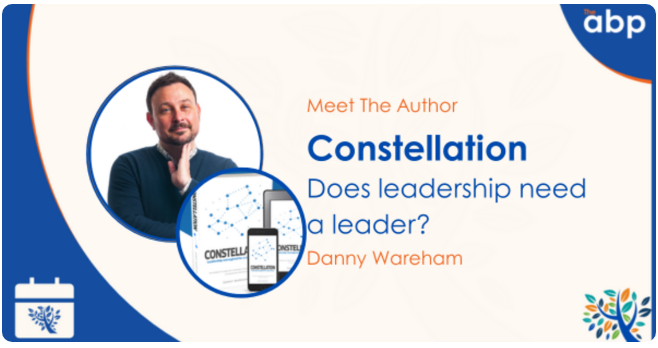 Meet The Author: Constellation - does leadership need a leader?
Meet The Author: Constellation - does leadership need a leader?
Location: Online Date : July 17, 2026 - July 17, 2026 Organizer: Association for Business Psychology
 The Mean and the Margin: When Intelligence Is Trained on the Average, Who Does It Forget?
The Mean and the Margin: When Intelligence Is Trained on the Average, Who Does It Forget? All Rowing, No Direction: Why team harmony can undermine performance
All Rowing, No Direction: Why team harmony can undermine performance New Year, New Me? The Psychology of Resolutions
New Year, New Me? The Psychology of Resolutions